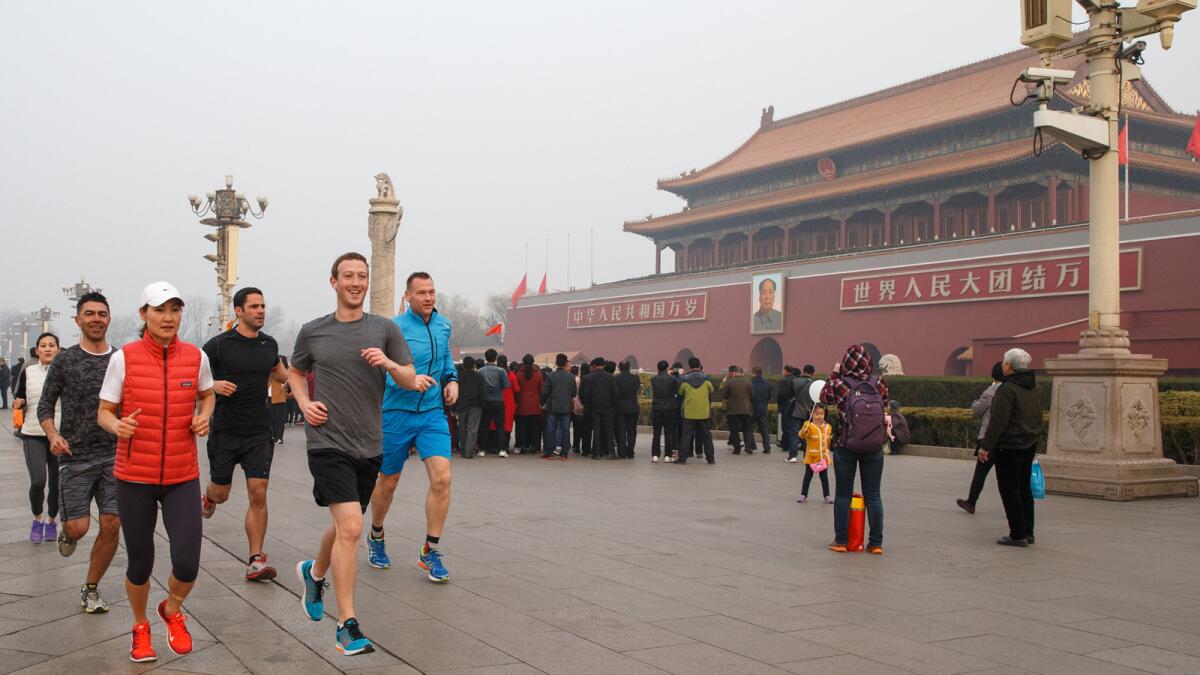Facebook gets a toehold in China after being locked out of the country for years

Facebook Inc. has obtained a license to set up an office in China — a first for the social media giant, which has been shut out of China’s lucrative market for years despite many attempts to break in.
The $30-million subsidiary, which will open in the southern city of Hangzhou, would be set up as a start-up incubator, making minor investments and advising small businesses, according to a person familiar with the company’s thinking and a Chinese business filing.
Facebook is currently blocked in China. Chief Executive Mark Zuckerberg has made personal appeals to the Chinese Communist Party’s top brass, including learning Mandarin and taking a notorious “smog jog” through Tiananmen Square, braving toxic air pollution for a photo op in 2016.
“We are interested in setting up an innovation hub in Zhejiang to support Chinese developers, innovators and start-ups,” the company said in a statement. “We have done this in several parts of the world — France, Brazil, India, Korea — and our efforts would be focused on training and workshops that help these developers and entrepreneurs to innovate and grow.”
A notice published on China’s National Enterprise Credit Information Publicity System listed the company as Facebook Technology (Hangzhou) Co., Ltd. and noted that it is wholly owned by Facebook Hong Kong. It has registered capital of $30 million.
The filing, which no longer is accessible, provided few details about what the subsidiary will — or won’t — do. It stated that the “business scope” included technology development, technical services and investment consulting, among a long list of other things.
Facebook had quietly launched a photo-sharing app called “Colorful Balloons” for the Chinese market last year. It was released by a company called Youge Internet Technology.
Youge’s executive director is a woman named Zhang Jingmei, who has been pictured visiting Shanghai officials with the woman who was then Facebook’s top representative in China, Wang-Li Moser. Zhang is listed as the “legal person” for Facebook’s subsidiary in China.
Facebook has a sales office in Hong Kong, and for years has sought to open an office in mainland China. But China has a robust economy of social media companies, and the government has favored local competitors.
Facebook’s efforts have been marked by fits and starts. The company scouted for space in Shanghai last year and obtained a permit to open an office in Beijing in 2015. Neither materialized.
Oculus, Facebook’s virtual reality company, has a Shanghai office, and the company is interested in China for its growing hardware ambitions.
Dwoskin and Rauhala write for the Washington Post.






